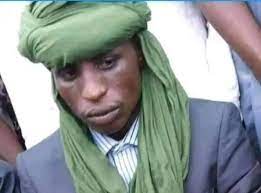Muhammadu Buhari is yet to crush Boko Haram. Period.
That informs the December deadline he gave the military to deal with it.
But there is no sign the president will rout the jihadists soon, even though security of lives and property was one of his cardinal promises during the election campaign.
 He and his All Progressives Congress (APC) ceaselessly lampooned the way former President Goodluck Jonathan handled security.
He and his All Progressives Congress (APC) ceaselessly lampooned the way former President Goodluck Jonathan handled security.
They described his efforts as lacking coherence and strategy, tainted by corruption in the top echelons of the security apparatus, and bereft of the kind of logistics and amour necessary to prosecute the war against insurgency.
The three North Eastern states of Adamawa, Yobe, Borno are still in the grip of Boko Haram; with occasional flashes in Nasarawa, Abuja, Plateau, Bauchi, Kano, and Kaduna.
Terror from Boko Haram has been recurring since 2009, and by last week had claimed about 15,000 lives.
Added to this is the spectre of Fulani cattle rearers’ incessant massacre of defenceless people in Plateau and Benue, and other agricultural belts in the North, where the attackers claim natives hinder them from grazing their flock.
Fulani herdsmen have slaughtered no fewer than 2,000 people since 2009.
The inability of Jonathan to effectively crush these disturbances made Buhari’s promise of enthroning peace and security very welcome.
It added to the public rally that ensured his undisputed success at the ballot box on March 28.
“We will tackle insecurity in the country as quickly as we settle down in office and the territorial integrity of this nation will no longer be threatened by hunters and terrorists,” he promised during the campaign.
Striving to keep promise
Buhari, mindful of the huge expectation on him, wasted no time in pursuing Boko Haram after his inauguration.
The first thing he did was to relocate Defence Headquarters from Abuja to Maiduguri in Borno State, the epicentre of the Boko Haram killing field.
Then he weeded the military high command and replaced service chiefs with those he believes know the terrorists’ routes and strategies very well.
The new security folks are Major General Abayomi Gabriel (Chief of Defence Staff); Major General T.Y Buratai (Chief of Army Staff); Rear Admiral Ibok Ibas (Chief of Naval Staff); Air Vice Marshal Sadique Abubakar (Chief of Air Staff); Air Vice Marshal Monday Morgan (Chief of Defence Intelligence); and Babagana Monguno (National Security Adviser).
Same old challenges
However, most of the challenges which hindered Jonathan from effectively prosecuting the war are the same Buhari is contending with, meaning there is no cut-and-fix solution.
Insurgency took root from a local agitation for better living standards as Muslim youths up North found the economic environment hard to tackle when the Olusegun Obasanjo administration launched Nigeria into economic deregulation in 2004.
The economic pattern was pursued more vigorously from 2007 by the succeeding Umaru Yar’Adua/Jonathan tenure – and insurgency has been progressive year after year.
Jonathan, under whose administration the insurrection waxed stronger, had limited strategies to fight it off.
His government, on which Buhari concentrates his fault finding, faced the problem of inadequate armoury for the army.
“Since after the civil war,” Jonathan had explained, “the army had relaxed purchase of military hardware because we were in peace time.
“That was why we had less arms, not that the army was not able to root out the insurgents.”
His administration began a frantic search for arms around 2014, less than a year to the 2015 general election.
Jonathan assembled a West African coalition force with the approval of the African Union (AU) and the United Nations (UN) which are still fighting the rebellion.
Another challenge Jonathan had, which the Buhari administration has not overcome, is winning total global assistance in practical ways.
Jonathan had to prosecute the anti-terror campaign according to internationally acceptable norms in order to minimise the number of internally displaced persons (IDPs), and avoid the violation of human rights.
Work in progress
Nigeria’s supposed allies in the battle, such as the United States, Britain, and France, were careful in extending assistance to Jonathan, just as they have been evoking sundry reasons for not giving Buhari maximum equipment directly.
Rather, the U.S. has opted to fortify the multinational force with $5 million.
Also, the Buhari administration will inherit the $1 billion the World Bank granted to Nigeria to cater for IDPs and reconstruct the economies of the states ravaged by the terrorists.
There are also all kinds of assistance and pledges from Nigeria’s friends, international organisations, and agencies to help Buhari bring peace to the North East.
He has not ensured security by mere appointments. The terrorists are still killing people, and military counter offensive has not been adequately felt.
But Buhari has not relented. So, it is still work in progress.













